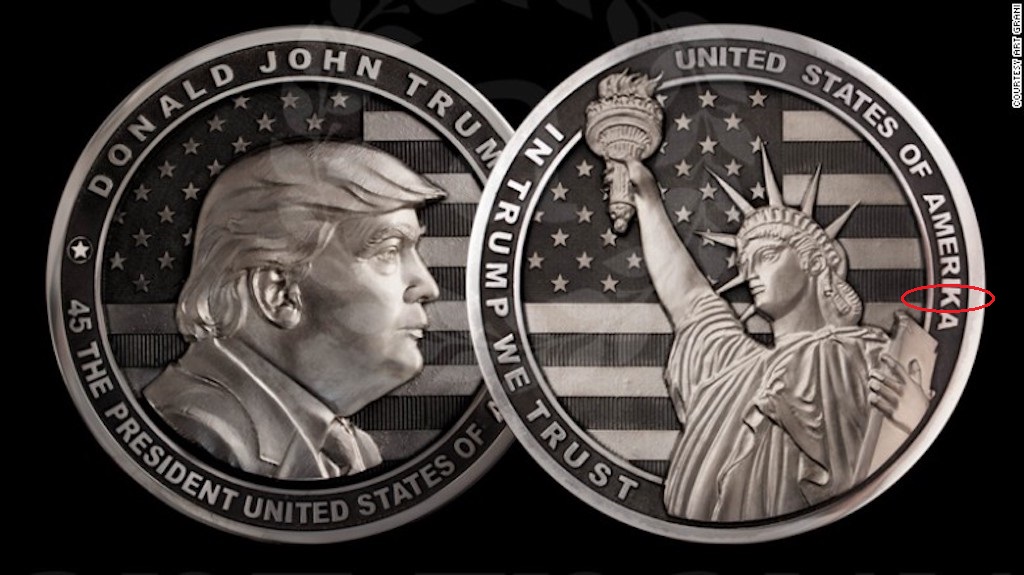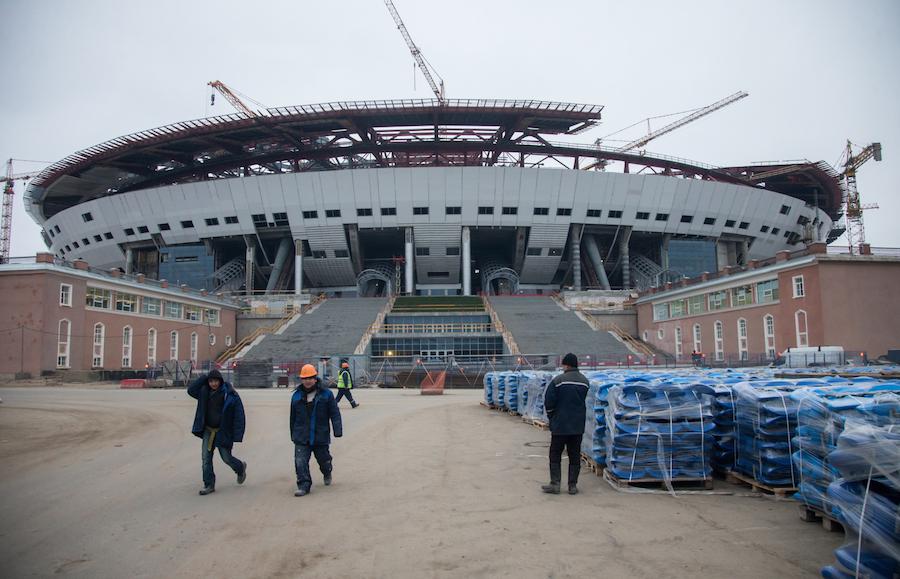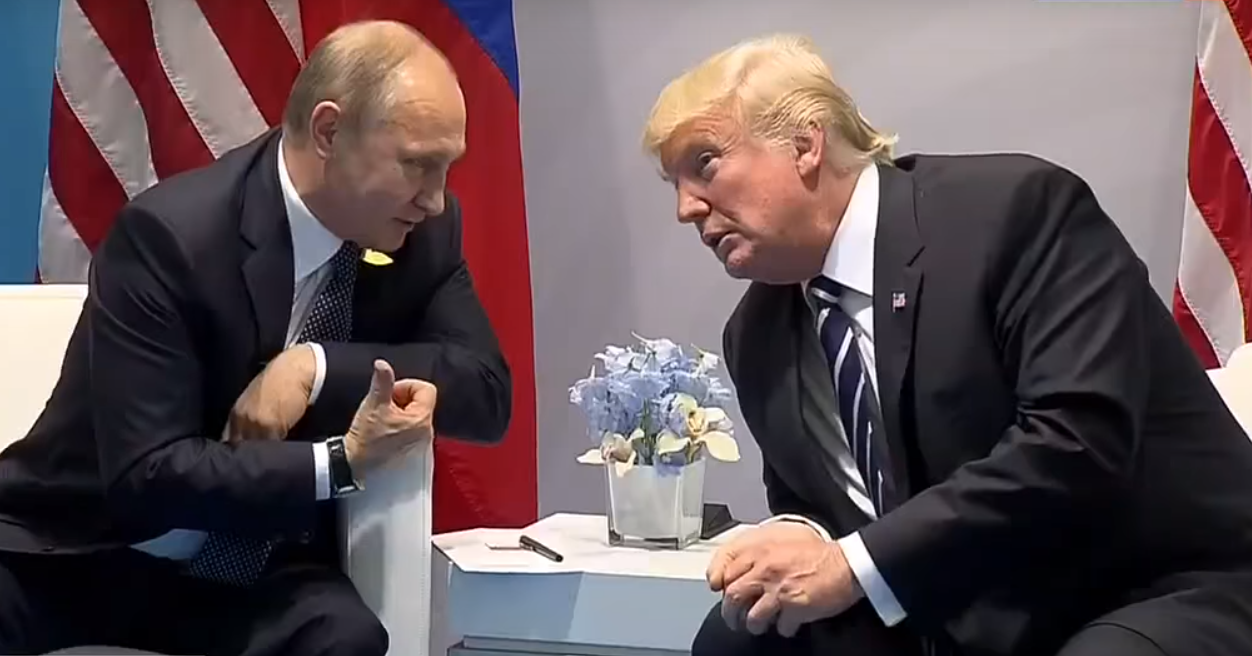The flood of news stories from a country as large, diverse and strange as the Russian Federation often appears to be is far too large for anyone to keep up with. But there needs to be a way to mark those which can’t be discussed in detail but which are too indicative of broader developments to ignore.
Consequently, Windows on Eurasia presents a selection of 13 of these other and typically neglected stories at the end of each week. This is the 77th such compilation. It is only suggestive and far from complete – indeed, once again, one could have put out such a listing every day – but perhaps one or more of these stories will prove of broader interest.
1. Putin’s Low Ratings in US Matter of Regret, Kremlin Says
Vladimir Putin’s press spokesman says that the low ratings of his boss among Americans is regrettable. But the Kremlin may have reason to worry more about Putin’s ratings closer to home. His high marks in polls appear to be softening, and there is evidence of a greater willingness among some Russians to treat the Kremlin leader as less that god-like.
One commentator on April 1 suggested that Putin today is remarkably similar to the pharaohs of ancient Egypt, while others circulated a picture of Putin as a gay man before the powers that be declared such presentations “extremist.”
2. For Russians, Syrian Strikes Transform Trump from ‘Ours’ to ‘Enemy’ to ‘Another Hillary’

Prior to the US airstrike on a Syrian military base after Bashar Asad used chemical weapons on his own people, Moscow officials and commentators continued to stress the closeness of Putin and Donald Trump, with spokesman Dmitry Peskov talking at length about how similar the styles of the two leaders supposedly are and how they share common domestic enemies.
After the airstrike, Moscow’s position changed on a dime: Trump went from being “ours” to “an aggressor” and “enemy” to “another Hillary Clinton” in the space of a day. More sober-minded analysts suggested Russia should view Trump neither as a friend or an enemy but “simply as Trump.” The airstrikes raised some even bigger questions in Moscow, however, with analysts asking whether Moscow couldn’t defend its ally Assad or was afraid to do so.
3. Fitch Raises Russian Bond Rating to Just Above ‘Junk’ as Impoverished Russians Stop Buying TVs
Russian commentators welcomed a decision of the Fitch rating agency to reclassify Russian bonds as just above “junk” status but they are less pleased that increasing poverty, now at the highest level since 2006, means that Russians aren’t buying new television sets, the primary channel for Kremlin influence on the population.
Russian analysts have become increasingly critical of the Kremlin’s approach, pointing out that the state sector of the economy – now 70 percent by output – is holding things back, that no one is benefiting from the Central Bank’s low inflation policy, and that forced import substitution is doing more harm than good.
Meanwhile, Moscow continues to cut back its subsidies even to industries it says are critical, like aviation, and statistics show that most portions of the Russian economy have stagnated or even declined since 1990.
4. Russia Now Lags Behind West on All Key Health Measures, Figures Show
While the Soviet Union was ahead of the West on some health measures, Russia today is now behind on every measure for which statistics are comparable, experts say. Incomes and consumption continue to fall with ten percent of Russians now not being paid enough to feed themselves.
A new phenomenon has hit Russia: many couples are now getting fictional divorces in order to qualify for social welfare payments. Other indications of how hard life is becoming:
- Muscovites have been told that they will have to absorb the costs of tearing down and replacing the five-story khrushchoby buildings in which many have been living
- The number of regions getting money for road repair has been cut again, hitting some where the lack of roads will make economic growth far more difficult
- And Russians can’t expect a light at the end of the tunnel anytime soon: the education ministry says it will take at least 80 more years to meet Putin’s famous May decrees.
5. Protests Spread Challenging Ability of Regime to Cope
The March 26 marches convinced many Russians that being against the regime does not make one a marginal figure but rather means that they are with the people, one commentator suggests, and there is growing evidence of that as Russians show solidarity with those arrested despite repressions.
Two official efforts, a call to ban all demonstrations in the wake of the St. Petersburg bombing and a transparent effort to hijack the protest movement by organizing meetings in support of Moscow’s anti-terrorist effort have backfired.
The first has yet to be adopted, and the second has sparked resistance with some cities refusing to hold such meetings and others going ahead with their own holidays. Kaliningrad for instance will mark the day of sorrow not with a demonstration about that but rather go ahead with its plans to celebrate Herring Day.
There is even evidence that protests or the fear of protests is affecting government decisions: Moscow has pledged not to take down any of the old five-story khrushchoby buildings unless at least 80 percent of the residents agree.
6. St. Isaac’s Case Highlights Complete Dependence of Moscow Patriarchate on State
The fight over handing back St. Isaac’s cathedral to the Russian Orthodox Church highlights not the church’s strength but its complete dependence on the state for anything it gets, one commentator says. If the state supports the church, the latter wins; if it doesn’t, the reverse is true.
Meanwhile, the fight over returning churches has spread across the country with problems arising when the buildings are now being used for socially useful purposes such as OB/GYN clinics.
The most interesting fight of the week on the monuments front was in Novosibirsk. There, a group that wanted to erect a bust of Stalin but was told no by the local authorities who pointed out that there is already a Stalin statue in the city. Instead, the city will erect a bust of Nicholas II.
7. Another FIFA World Cup Scandal: Moscow Said Using North Korean Slaves to Build Venues for 2018
 Newspapers in the West have reported and the Moscow Times has repeated a story that Moscow, in its rush to build venues for the 2018 FIFA World Cup is using “slaves” from North Korea to complete the work under budget.
Newspapers in the West have reported and the Moscow Times has repeated a story that Moscow, in its rush to build venues for the 2018 FIFA World Cup is using “slaves” from North Korea to complete the work under budget.
Meanwhile, earlier scandals, involving Russian hacking of international sports bodies and the cover up of the massive Moscow doping program continue to bubble along. And the Russian government took a positive action – increasing penalties on the often outrageous behavior of Russian fans – by adopting a law increasing penalties on them, something that only highlights how serious that problem still is.
8. Almost Every Proton Rocket Engine Found Defective
Moscow’s announcement two weeks ago that it was inspecting its Proton rockets has given Russia another black eye in the security area: Almost every single one of the rocket engines examined was found to have defects, many of them serious. But there was more bad news on the defense industry and security fronts:
- Moscow acknowledged that Brazil is now building more non-atomic submarines than Russia is
- Draft resistance has increased in some parts of the country
- Attacks on police and National Guard officers have increased
- Moscow has been warned by experts that its favored response – more repression by reintroducing the death penalty for terrorist actions is likely to make them more, not less, common.
9. Operation Trust, the Cheka’s First Special Operation, Celebrated in Hour-Long TV Program
The Trust, a false flag operation organized by Felix Dzerzhinsky, to penetrate and disorder the anti-Soviet White Russian military emigration has been celebrated in a 65 minute Moscow television program. That is not the only revenant from the past that swirled through Russia this past week:
- Archaeologists found a 16th century spy chamber under buildings in Moscow
- Soviet ideologist Mikhail Suslov’s suggestion in 1961 that Moscow could use ethnic minorities against Georgia was recalled
- Officials in Kaluga urged journalists to use the term “horde” rather than “Tatar-Mongol” to describe the occupation of Russia by Genghis Khan in deference to Tatar concerns.
10. Jehovah’s Witnesses Banned and Other Moves on the Religious Front
The biggest news on the religious front during the last week was Moscow’s decision to ban the Jehovah’s Witnesses in Russia, a decision that one commentator suggested was transforming a group “of pacifist believers into enemies of the state.” Others include:
- The Buddhists finally are getting their own religious center in Moscow
- Daghestan’s Muslim Spiritual Directorate has pulled out of the North Caucasus Coordinating Center which had overseen all MSDs in the North Caucasus
- Jewish groups objected to a decision by Moscow’s First Channel to show clips from a Nazi film suggesting that the Rothschilds and other wealthy Jews had formed a conspiracy to pursue world rule
- Jewish and Orthodox Christian organizations divided on Chechnya’s decision to allow school children to wear the hijab, with the first supporting it and the second opposing that step.
11. Medvedev Attacked and Defended
Prime Minister Dmitry Medvedev sought to dismiss the Navalny report on his corrupt practices by calling it “a compote” but that only sparked more criticism of the Russian leader. But Medvedev was defended by those who matter: Vladimir Putin and the Russian State Duma leadership both dismissed the charges against the premier and said there was no reason for an investigation. Even if an investigation were to be launched, experts said, it would be unlikely to find anything or conclude quickly as that has been the outcome of all cases the authorities don’t want to reach any conclusion.
12. Is Karelia Becoming Burelia?
Some regions welcome the change in governors that Vladimir Putin has made, none more than Mari El where the departure of Leonid Markelov has been greeted with enthusiasm given his authoritarian rule. But some in that Middle Volga republic are less than pleased
by Putin’s decision to appoint another Russian and another outsider to their Finno-Ugric republic.
In another Finno-Ugric republic, Karelia, people are even more unhappy with the arrival of officials who are more connected to Buryatia than to Karelia, with some suggesting that perhaps Moscow should rename Karelia “Burelia.”
13. Russia is a Country That Shouldn’t Exist but Does, Polish Commentator Says
A Polish analyst says that by Western measures, Russia is “a country which should not exist but nonetheless does,” a reflection of its distinctive history and style of governance.
Meanwhile, Ukrainian President Petro Poroshenko has described Russia as “a quasi-state” even as other Ukrainian analysts have outlined their ideas on the gubernization of Russia, both responses to Moscow’s continuing claims that Ukraine isn’t a state but must be federalized.
And six more from countries in Russia’s neighborhood:
1. Ukrainians Get Visa Free Travel to EU; Russians Get It to Samoa
The EU has voted to give Ukrainians visa-free travel, something Kyiv has long wanted. On the same day, Moscow announced that it has signed an agreement giving Russians visa-free travel to Samoa.
2. Uzbekistan Now Outranks Russia in FIFA Ratings While Russia Just Beats Out Belarus in Freedom House Rankings
Uzbekistan’s national team now rates higher among world soccer clubs than does Russia which fell another point over the last year. Meanwhile, Russia found itself ranked just between Kyrgyzstan and Belarus on Freedom House’s freedom index.
3. Ukrainians Call for Boycott of 2018 World Cup if It Isn’t Moved from Russia
Ukrainian activists have launched a petition drive to strip Russia of the right to hold the 2018 FIFA World Cup and called on other nations to boycott that competition if it isn’t moved.
4. Uniates Acquire a New ‘Friend’
The Moscow Patriarchate has softened its longstanding hostility toward the Uniates, not only as part of its campaign to reach out to the Roman Catholic world but also to put Russia in a better position to have influence on that important religious group in Ukraine.
5. Vatican Announces Plans to Beatify Lithuanian Churchman Held in GULAG
The Holy See announced this week that it intends on June 25 to beatify Teofilius Montulionis, who was secretly created archbishop by Pope Pius XI while he was a captive of the Soviets. Beatification is the first step toward sainthood.
6. Baku Upset at Moscow for Russian Plans to Liquidate All-Russian Azerbaijani Association
Azerbaijanis are furious at the Russian government for its announced plans to liquidate the All-Russian Azerbaijani Association as a foreign agent, not least because Azerbaijan president Ilham Aliyev’s daughter is a senior official of that group.
Related:
- Putin is 'a criminal but not Stalin' and other neglected Russian stories
- ‘Putin is the Bin Laden of today’ and other neglected Russian stories
- “Even large Russian cities are beginning to die” and other neglected Russian stories
- “Putin is War; Putin is Death” and other neglected Russian stories
- “Kremlin views Trump as ‘stupid, un-strategic, and manipulable,’” and other neglected Russian stories
- ‘Moscow can’t find builder for new military base on Ukrainian border’ and other neglected Russian stories
- ‘Russian spies interfered with Nobel Committee to prevent Poroshenko Peace Prize’ and other neglected Russian stories
- Why did Putin say Russia’s prostitutes were ‘best in the world’ and other neglected Russian stories
- Russians calling Washington ‘Nashington’ and other neglected Russian stories
- Like Crimea, ‘Trump is Ours,’ Russian products proclaim and other neglected Russian stories





